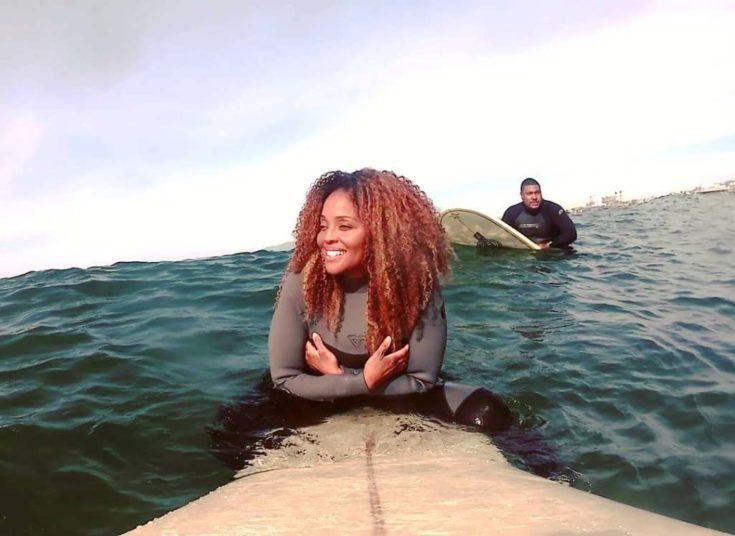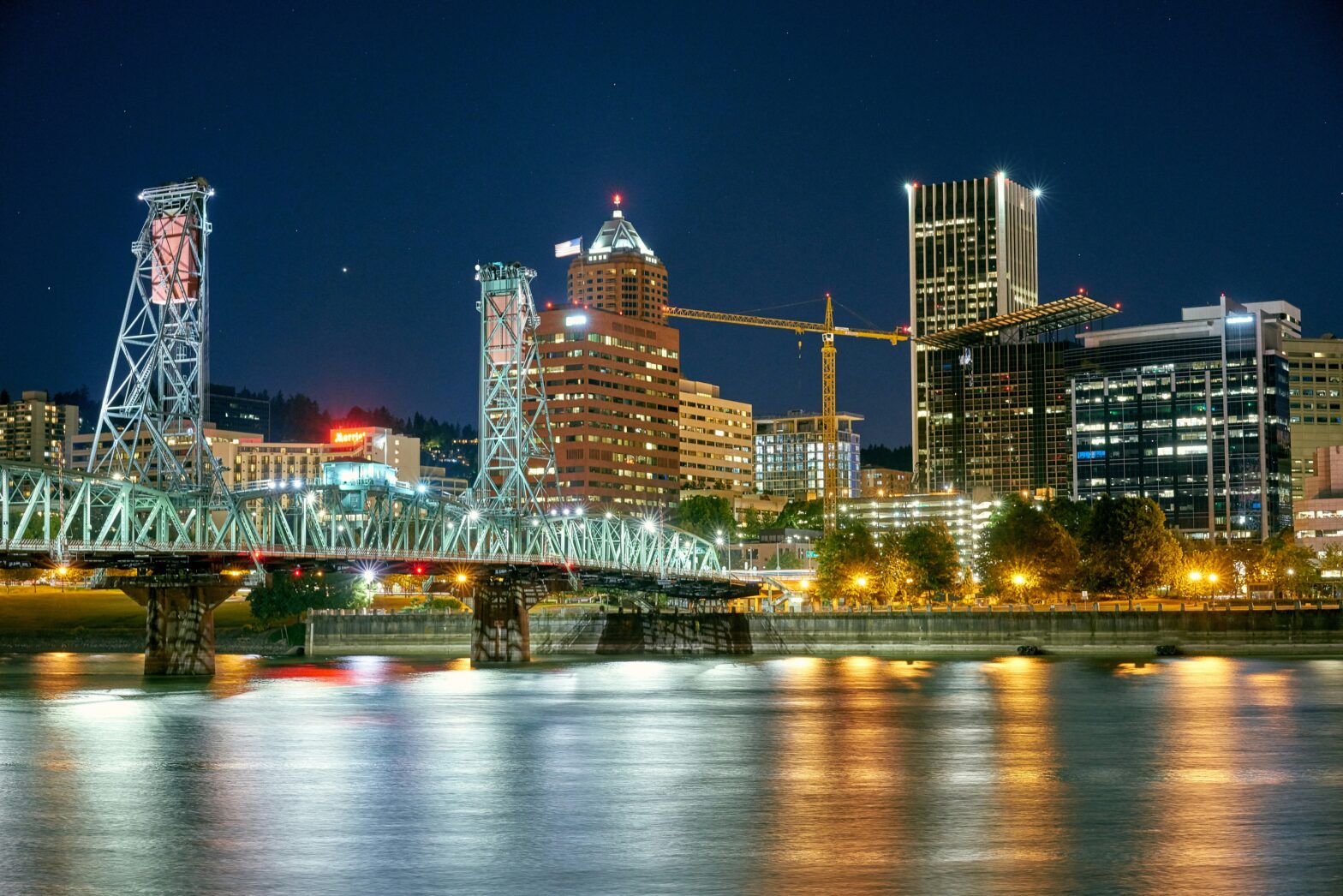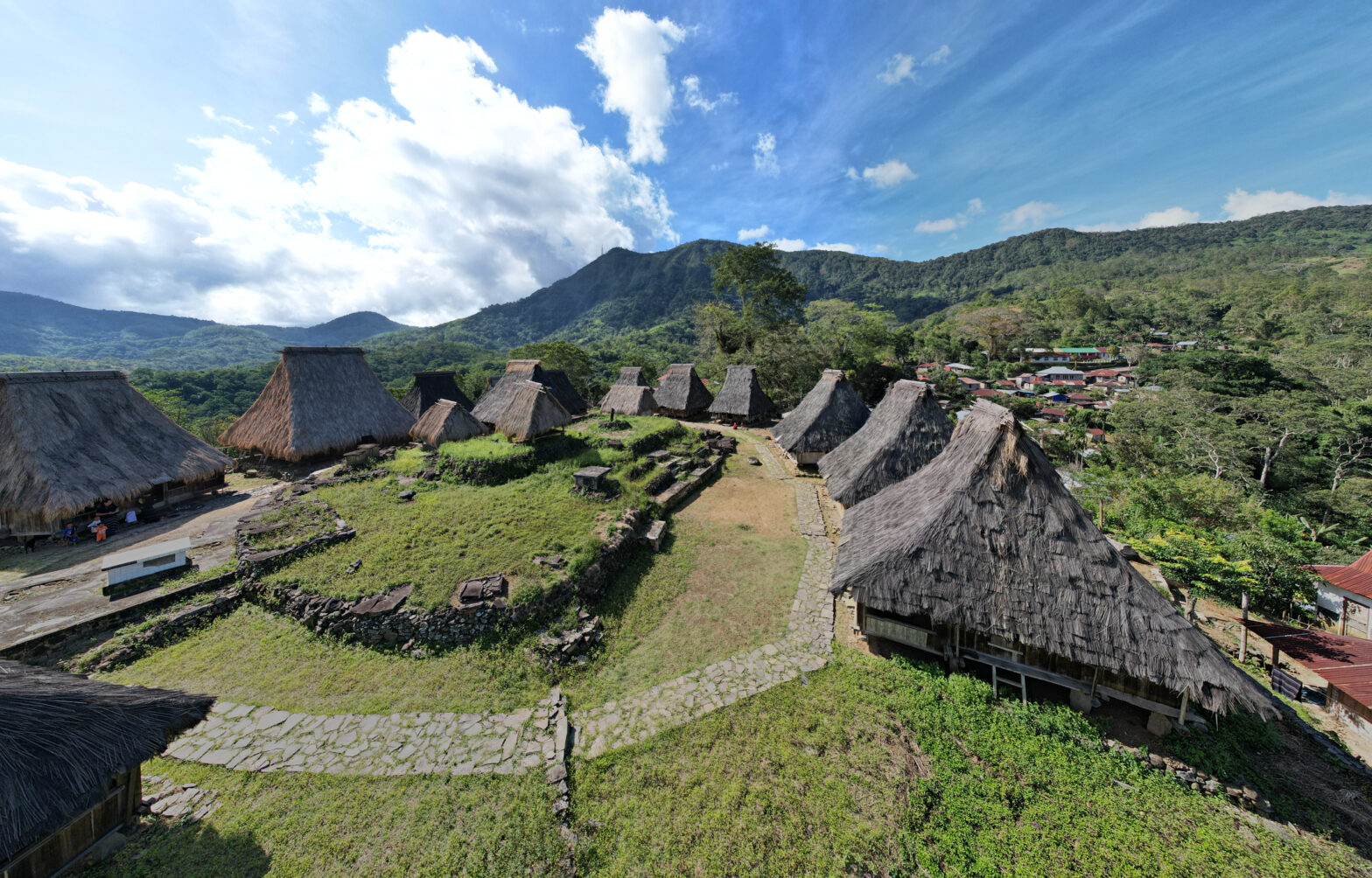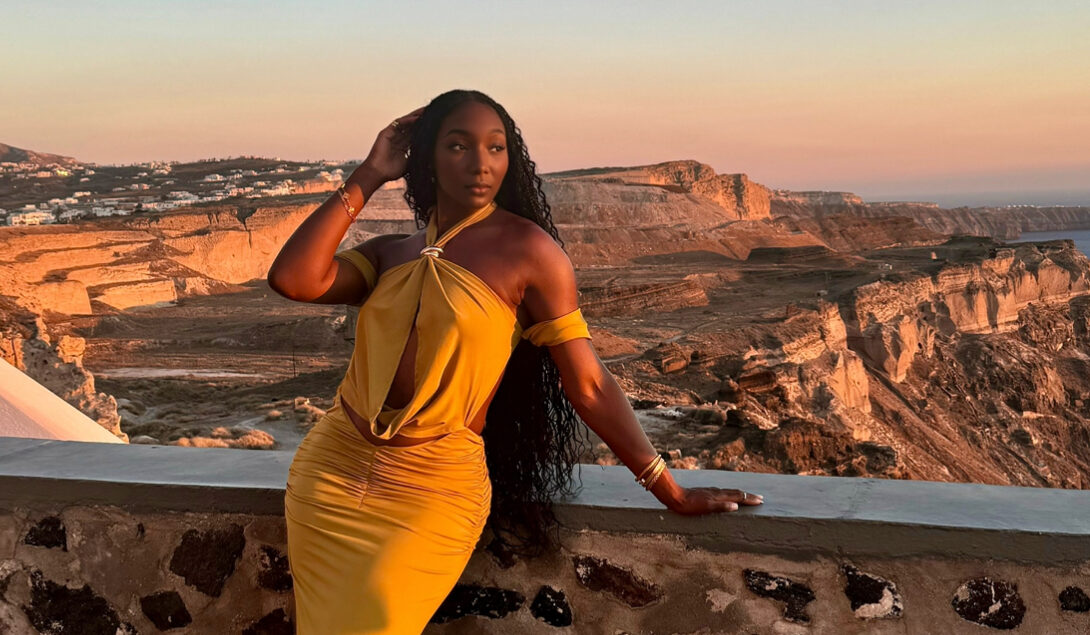Mimi Miller didn’t grow up by the ocean, and in fact, nearly 10 years ago, she had never been in an ocean. Now, she has dedicated her time and energy to make sure Black surfers get the recognition they deserve.
After raising three children, she became an empty nester and relocated to California. She was ready for a change. Miller, who has West Indian roots, knew that she wanted to leave the cold Midwest and settle near the ocean.
When she first got there, she did what the average person would do when they’re new to having an ocean in their backyard. Miller and a group of friends would dress cute and sit at the beach.
“We did that every week for a year, and after a while, I just asked them, ‘is this what we’re going to do the entire time?'” said Miller to Travel Noire.

Sitting stagnant wasn’t good enough for Miller. She met someone at the beach who took her out on the water and taught her how to use a bougie board in the ocean.
RELATED: Textured Waves: The Surf Collective Inviting More Women of Color To The Water
One day after one of her lessons, she witnessed something that she didn’t even know existed. They weren’t exactly unicorns, but something like it.
“I saw two Black men coming out of the ocean from surfing. I couldn’t believe it. I had never seen Black surfers in my life,” she said. “I took a picture of them, then posted it on Facebook, and one of my friends replied, ‘you know there’s a Black surfers club here in Califonia, right?”
Joining A Community For Black Surfers
After learning about the Black Surfers Collective, Miller went to her first meetup on a Sunday after church.
“I ran to the beach and started screaming, ‘oh my God! Black people surf.’ People were looking at me like I was crazy,” she told Travel Noire jokingly.
Miller will be the first to tell you that seeing Black surfers did something to her soul and that’s exactly why representation matters. She decided that day, a woman who didn’t grow up on a beach or who never swam in the ocean before living in California, that she would learn how to surf.
Through her journey, she realized that more Black people need to be on the water surfing.
“Black surfers only make up about 4 percent of surfers in this country. We’re still very rare,” Miller added. “To be in the water with a bunch of white guys knowing our history here in America with water and slavery takes a lot of courage, and it shouldn’t. Our natural element is water. We are coastal people. We are children of the sun and water. We have a relationship with both of these elements, but we’re denied that right. We were made to believe that the water isn’t for us, but we’re actually the originals.”
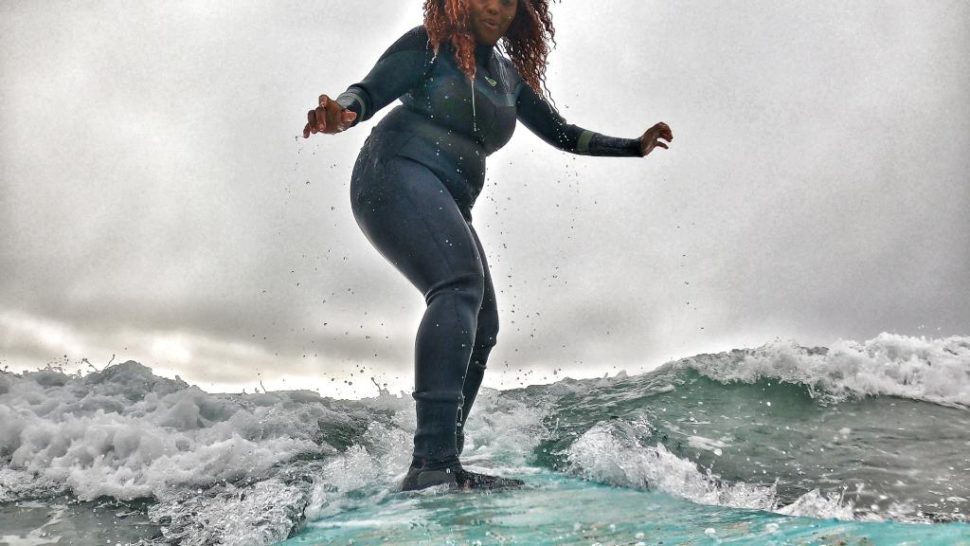
Indigenous Beach Culture Film Fest
When she started surfing, she began talking to the Black surfers she came in contact with. It started as a way to document her personal experiences.
“When I started watching all the surf documentaries, I started getting sick because out of the thousands of people interviewed, there was only one Black family of surfers,” said Miller. “The rest were all white guys surfing in the most exotic beaches while the Black people were in the background. It would be African music, beautiful African women and children, and then you see a white guy with his surfboard and all the children would run up to him like he’s a god.”

She was tired of seeing that same image and created her own lane. Miller developed so much content over time that it became an experience to celebrate through Indigenous Beach Culture days when she gathered on the beach with friends to celebrate their heritage with yoga, food, music, dancing, and of course, surfing. Her movement has grown into the Indigenous Beach Culture Film Festival, which held its inaugural event in October 2020 at Leimert Park in LA.
So, what’s next for Miller? She didn’t go into too much detail, but she ended the conversation by stating she looks forward to the day she sees more representation in the surfing community in and out of the water.
“Surfing is a multi-billion dollar industry, and I want Black brands to invest in Black surfers. I’m ready to see surfing documentaries and advertisements with people that look like me, with their shea butter and coconut oil in their hands about to hit the water,” said Miller.
See more of Mimi’s surfing adventures by following her on Instagram.
